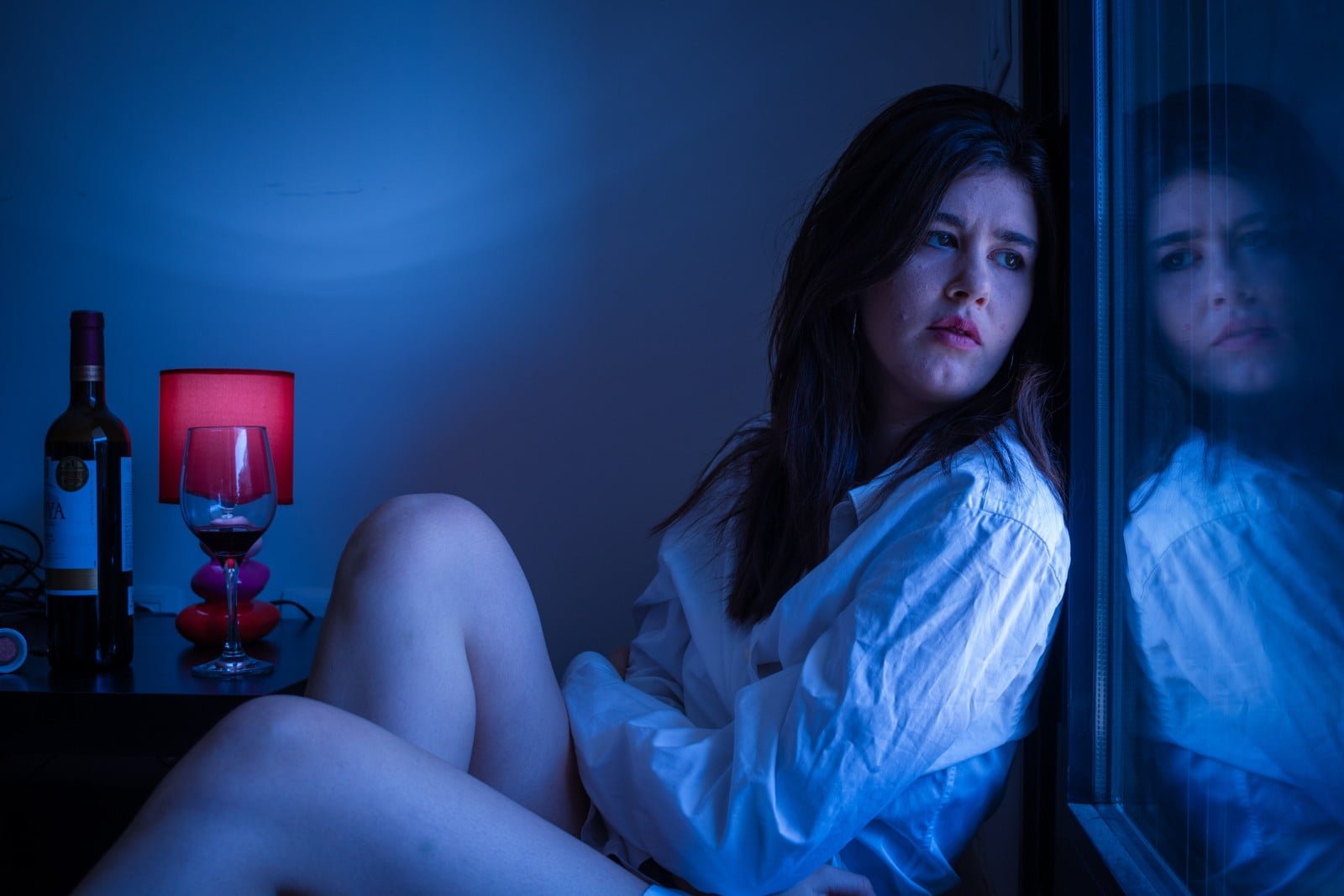Bipolar disorder is a serious mental illness that affects millions of people worldwide. While it can occur in both genders, bipolar disorder tends to be diagnosed more often in women. Bipolar disorder is characterized by extreme mood swings, from highs (mania or hypomania) to lows (depression).
Bipolar depression is a type of depression that occurs during the low, or depressive, phase of bipolar disorder. It can be extremely debilitating, making it difficult for those affected to function in their day-to-day lives. Bipolar depression in females often goes undiagnosed, as the symptoms can be similar to those of other conditions, such as major depression.
In this blog post, we will discuss the signs and symptoms of bipolar depression in Women, as well as its triggers and treatment options. We will also provide information on how to properly diagnose bipolar disorder.
Bipolar disorder In Women: What is it?
Bipolar depression is a type of mood disorder characterized by extreme swings in mood and energy levels. This condition can affect both males and females, but there are some differences in how it presents in women. Here are some important points to consider when it comes to bipolar depression in females:
PREVALENCE: Bipolar disorder affects approximately 2.6% of the US population, with a similar incidence rate in both men and women. However, some studies suggest that women are more likely to experience rapid cycling, in which they go through multiple mood swings within a short period of time.
ONSET: Women with bipolar disorder often experience their first episode of depression or mania in their late teens or early 20s, which is earlier than men.
SYMPTOMS: The symptoms of bipolar depression in women can be similar to those experienced by men, including feelings of sadness, hopelessness, fatigue, and a loss of interest in activities they once enjoyed. Women may also experience symptoms of mania, such as irritability, reckless behavior, and a decreased need for sleep.
DIAGNOSIS: The diagnosis of bipolar disorder can be challenging, as it is often misdiagnosed as depression or another mental health condition. Women may also be more likely to experience misdiagnosis due to the gender bias that exists in the mental health field.
TREATMENT: The treatment for bipolar depression in women may include a combination of medications, such as mood stabilizers and antipsychotics, and psychotherapy, such as cognitive behavioral therapy or interpersonal therapy. It is important to work with a mental health professional to develop an individualized treatment plan that takes into account a woman’s unique symptoms and needs.
Bipolar depression is a mood disorder characterized by alternating periods of depression and mania. It affects both males and females, but the signs and symptoms may differ between the two genders.
Here Are Some Signs Of Bipolar disorder In Women:
MOOD SWINGS: One of the most common signs of bipolar depression in females is mood swings that alternate between high and low.
SLEEP DISTURBANCE: Females with bipolar depression often experience sleep problems, including trouble falling asleep or staying asleep.
IRRITABILITY: Irritability is a common symptom of bipolar depression in females, which can result in mood swings, anger, and frustration.
ENERGY LEVELS: A person with bipolar depression may experience fluctuations in energy levels, including periods of high energy (mania) followed by low energy (depression).
ANXIETY: Females with bipolar depression may experience feelings of anxiety and worry, which can lead to panic attacks.
CHANGES IN APPETITE: Changes in appetite, such as overeating or not eating enough, are common symptoms of bipolar depression in females.
DIFFICULTY CONCENTRATING: Females with bipolar depression may have trouble focusing and concentrating, which can impact their ability to complete tasks.
It’s important to seek help from a mental health professional if you suspect you have bipolar depression. With proper treatment, including therapy, medication, and lifestyle changes, individuals with bipolar depression can learn to manage their symptoms and improve their quality of life.
What Triggers Bipolar Depression In Females?
There is no one definitive answer to what triggers bipolar depression in females. However, researchers have identified several possible triggers. These triggers include hormonal changes, stressful life events, substance abuse, and sleep disturbances.
Treatment For Bipolar Depression In Females
There are several different types of treatment available for bipolar depression in females. The most common type of treatment is medication. There are many different types of medication that can be used to treat bipolar disorder, including mood stabilizers, antipsychotics, and antidepressants. It is important to work with a mental health professional to find the right medication for you.
- HORMONAL CHANGES: Hormonal changes during menstruation, pregnancy, and menopause can increase the risk of bipolar depression in females.
- GENETICS: Bipolar disorder has a strong genetic component, and females who have a family history of bipolar disorder are more likely to develop the condition.
- LIFE EVENTS: Traumatic life events, such as a death in the family, relationship problems, or financial stress, can trigger bipolar depression in females.
- SUBSTANCE ABUSE: Substance abuse and alcohol consumption can increase the risk of bipolar depression in females.
- CHRONIC ILLNESS: Chronic physical illnesses, such as heart disease or autoimmune disorders, can increase the risk of bipolar depression in females.
Bipolar disorder In Females: How It’s Diagnosed
Bipolar depression is often misdiagnosed as major depressive disorder. This is because the symptoms of bipolar depression can be very similar to those of major depressive disorder. However, there are some key differences that can help to distinguish between the two conditions. For example, people with bipolar disorder are more likely to experience manic episodes, while those with major depressive disorder are not. Additionally, people with bipolar disorder may have a family history of the condition, while those with major depressive disorder typically do not.
To diagnose bipolar disorder, a mental health professional will first rule out other potential causes of the symptoms. This includes assessing for substance abuse, sleep disorders, and other medical conditions that can mimic the symptoms of bipolar disorder. If no other cause can be found, the mental health professional will then assess for the presence of mania or hypomania. To do this, they will ask questions about mood, energy levels, and behavior. They will also ask about any family history of bipolar disorder. A diagnosis of bipolar disorder is typically made if a person has experienced at least one episode of mania or hypomania in their lifetime.
- BIPOLAR DEPRESSION: Bipolar depression is a type of mental illness that affects a person’s mood, behavior, and energy levels.
- FEMALES: Women are just as likely as men to develop bipolar depression, but the condition can present differently in women, making it harder to diagnose.
- DIAGNOSIS: Bipolar depression is usually diagnosed by a mental health professional who will ask about the patient’s symptoms, family history, and any previous treatment.
- CRITERIA: The diagnosis of bipolar depression requires meeting certain criteria, such as having manic or hypomanic episodes, depression, and changes in behavior, sleep, and energy levels.
- CHALLENGES: The challenges in diagnosing bipolar depression in women include a higher likelihood of misdiagnosis as depression, less noticeable manic symptoms, and the presence of other mental health conditions.
- IMPORTANCE: Early diagnosis and treatment of bipolar depression are important for managing symptoms, improving quality of life, and preventing potential complications.
Conclusion
The conclusion of this article discusses the takeaway message about bipolar disorder, which is that it is a serious mental illness that requires treatment. The section also discusses how bipolar disorder is not just “mood swings” and how it can be treated with medication and/or therapy. Finally, the conclusion encourages readers to seek professional help if they think they may have bipolar disorder.
Last Word From Author
Bipolar disorder is one of the most misunderstood mental illnesses in my opinion. I hope this blog post helps people to understand the situation better. I have been dealing with patients with bipolar disorder for over 10 years, specializing in psychiatry.
Bipolar disorder is a serious mental illness that should not be taken lightly. It is important to seek professional help if you think you may be suffering from the condition. With proper treatment, people with bipolar disorder can lead happy and healthy lives.
FAQ
Yes, bipolar depression in females is treatable through a combination of medications, psychotherapy, and lifestyle changes.
Women with a family history of bipolar disorder or other mood disorders, as well as those who have experienced stressful life events, are at higher risk of developing bipolar depression.
Bipolar depression in females can be managed through a combination of medications, psychotherapy, and lifestyle changes, such as regular exercise, a healthy diet, and stress management techniques. It’s important to seek professional help and work with a ment.







